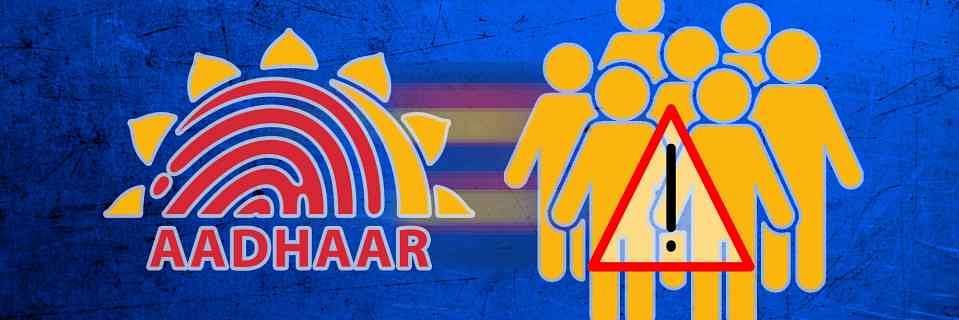Constitution Doesn’t Permit Surveillance State: Aadhaar Case Day 4
Latest arguments against Aadhaar focused on the dangers of surveillance and saw tough questioning from the judges.

Senior advocate Shyam Divan continued to argue in the Supreme Court against the constitutionality of the Aadhaar programme and Aadhaar Act, warning that the “very awareness that the government is watching can chill speech and associated freedoms.”
On a day when the Supreme Court judges took a more active role, questioning the petitioners about whether the Court could in fact second-guess the decisions of the government, and why giving the government access to information, which could be used to track a person, was different from giving it to Google or Apple, Divan challenged the Aadhaar programme under a few main heads.
The Main Heads of Challenge
According to Divan, the petitioners, who include like former Karnataka HC judge Justice KS Puttaswamy, several activists, Aruna Roy, Shantha Sinha and veteran CPI(M) leader V S Achuthanandan, had identified the following key problems:
- The Aadhaar programme enables state surveillance, which is not permitted under the Constitution.
- The programme infringed on the right to privacy without any statutory backing from 2010-2016, and even after the enactment of the Aadhaar Act, violates the right to privacy because it allows for extensive profiling.
- The State can, by deactivating an individual’s Aadhaar number, ‘switch off’ that person, effectively compelling the individual to become transparent to the State.
- The Aadhaar Act was introduced as a money bill, allowing the Rajya Sabha to be bypassed, without actually meeting the requirements of a money bill – since a valid legislative process has not been followed, the Act can be struck down.
- The procedure adopted before and after the Aadhaar Act to collect, store and secure data is insufficient – including the lack of informed consent at the time of enrolment, and the lack of relationship between the UIDAI and enrolment agencies – and is therefore arbitrary (violating Articles 14 and 21 of the Constitution).
The Dangers of Surveillance
After setting out the main heads of challenge, Divan spent the pre-lunch session showing how the Aadhaar Act compared unfavourably to existing laws which allowed the collection of sensitive personal data, such as the Registration Act 1908, the Census Act 1948 and the Bombay Habitual Offenders Act 1959. He argued that these were narrowly tailored legislation, that had a specific legitimate purpose and tried to achieve that purpose proportionately.
After lunch, he moved on to how the structure of the Aadhaar programme enabled surveillance (the first main head of challenge). Affidavits by security experts Samir Kelekar and J D’Souza were submitted to demonstrate the concerns with this, including the ability to track a person’s location at all times and risks to national security. D’Souza’s affidavit also included submissions on the unreliability of biometric information because of the ease with which fingerprints can be replicated.
It was at this point that the issue of balance came up. Justice Chandrachud, repeating a point made during the previous days of the hearing, asked why it was a problem to collect data if the data was used only for the limited purposes it was supposed to be. According to him, we need to balance an individual’s privacy rights against the State’s responsibilities, given threats of terrorism and money laundering, and also keep welfare expenditure in check.
“We Are Not Living in a Police Raj”: Divan
The judges also asked why there was concern about being tracked by the State, but none about Google Maps being able to do the same. Kapil Sibal pointed out that the problem indeed rested with giving the State that information since they could become like Big Brother as a result.
Prior to the end of the hearing, he used case law from India and around the world to show that surveillance constricts life and liberty – the “shadow of surveillance” itself is enough to have a chilling effect on how people behave. As a result, this violates the right to privacy – just because some information has voluntarily been given out, doesn’t mean one loses one’s right to privacy over it.
The hearing will resume on 30 January 2018.
(We Indians have much to talk about these days. But what would you tell India if you had the chance? Pick up the phone and write or record your Letter To India. Don’t be silent, tell her how you feel. Mail us your letter at lettertoindia@thequint.com. We’ll make sure India gets your message)
(At The Quint, we are answerable only to our audience. Play an active role in shaping our journalism by becoming a member. Because the truth is worth it.)